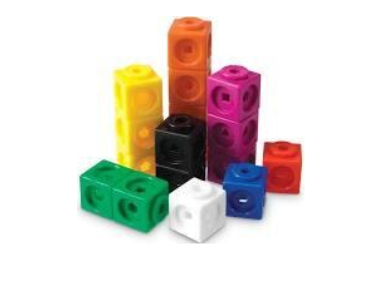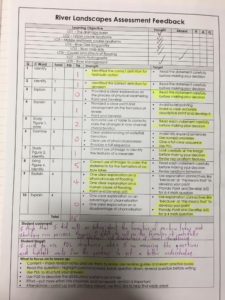


Our team sorts through all blog submissions to place them in the categories they fit the most - meaning it's never been simpler to gain advice and new knowledge for topics most important for you. This is why we have created this straight-forward guide to help you navigate our system.


And there you have it! Now your collection of blogs are catered to your chosen topics and are ready for you to explore. Plus, if you frequently return to the same categories you can bookmark your current URL and we will save your choices on return. Happy Reading!
Targets… every school has them, every student is set them and everything seems to be measured by them. However, for students with behavioural issues and ASD, these targets can actually set them up to fail. Why set students, who struggle to pay attention for longer than a lesson, targets so far in future they are almost unattainable? These types of students would benefit from trips out or a reward and yet they are never allowed because they haven’t been able to behave themselves for 39
weeks! Students with additional needs know they won’t be able to achieve this, so what incentive do they have to behave?
This is where attainable targets can help. Set a student a goal (not talking, turning up on time etc) to achieve in an hour, if they can, reward them! Who doesn’t like feeling they have achieved something? These rewards don’t have to be big; 10 minutes free time at the end of a lesson, ‘points’ towards something bigger or if you have a good relationship with the home setting, something they want there. If they still struggle to achieve their goal, reduce the period of time so that they can, but always make the reward comparable with the time. Start with small goals and build the expectation. Once a student feels like they can do, they will always strive to do better.

Students with additional needs (whether that be behavioural or ASD) have been told, shouted, lambasted about everything they have done wrong from a young age, giving them the attention all children crave. This in turn gives them a false idea of how to gain attention from adults, but this can start to be addressed by using something as simple as positive reinforcement. Make it a big deal if they do something they have never done before, like behaving for an hour.
Every parent/carer with a child with additional needs will tell you that when they see the schools phone number pop up, 9/10 times its going to be bad news. Change that. Tell them when their child has done something well and ask them to talk about it at home. Not only will this help the child’s self esteem and good feeling, it can help improve the home setting as well.
Using positive reinforcement and attainable targets create a good foundation, and when used in conjunction with other ideas and plans, can help change behaviours and help a child be successful in school.

The author

Read more

Read more

Read more

Read more

Read more

Read more

Read more

Read more


Are you looking for solutions? Let us help fund them! Nexus Education is a community of over 11,000 schools that come together to share best practise, ideas and CPD via online channels and free to attend events. Nexus also offers funding to all school groups in the UK via nexus-education.com


Established in 2011, One Education is a company at the heart of the education world, supporting over 600 schools and academies. Our unique appeal as a provider is in the breadth and synergy of the services we offer, supporting school leaders, teachers and support staff to achieve the best possible outcomes for their pupils and staff.

School Space is a social enterprise that has empowered schools for over 12 years through their profitable and hassle-free lettings services. So far, they’ve generated over £5 million in revenue for education, helping to connect over 200 schools with their local communities.


Unify is an online sales and marketing tool that allows users to create tailored personalised documents in moments.


There’s nothing special about the energy we sell. In fact, it’s exactly the same energy as all our competitors provide. But there is something special about the way we do it. Where others complicate the process, we simplify it. Where others confuse customers with hidden terms, we’re an open book. And where others do all they can to make as much money from their customers as possible, we do all we can to make as little. Everything we do, we do it differently. Our customers are a privilege. One we’ll never take advantage of.


Securus provide market-leading monitoring solutions to safeguard students on ALL devices both online and offline. We also offer a full monitoring service, where we carry out the monitoring on behalf of the school, freeing up valuable staff resources. From the smallest school to large MAT groups, Securus offers safeguarding protection for all!


Bodet Time offers dedicated solutions to education through lockdown alerts, class change systems, PA and synchronised clock systems. Improving time efficiency of the working and school day; ensuring safety through lockdown alerts; increasing communication with customised broadcast alerts.


Robotical makes Marty the Robot - a walking, dancing coding robot that makes programming fun and engaging for learners as young as 5. Our robots come with a full Learning Platform that has complete teaching resources, to make lesson planning a breeze.